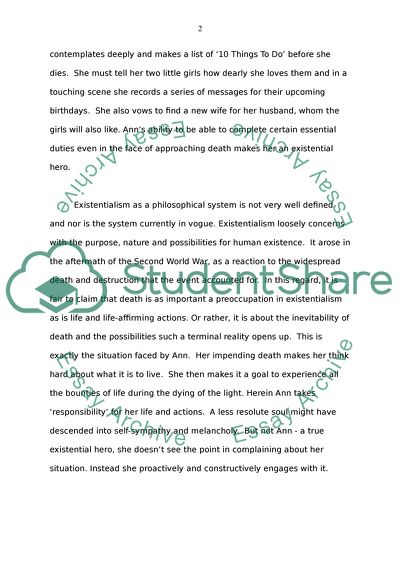Cite this document
(“Existential themes in the movie - My life without me Review”, n.d.)
Retrieved from https://studentshare.org/visual-arts-film-studies/1494014-existential-themes-in-the-movie-my-life-without-me
Retrieved from https://studentshare.org/visual-arts-film-studies/1494014-existential-themes-in-the-movie-my-life-without-me
(Existential Themes in the Movie - My Life Without Me Review)
https://studentshare.org/visual-arts-film-studies/1494014-existential-themes-in-the-movie-my-life-without-me.
https://studentshare.org/visual-arts-film-studies/1494014-existential-themes-in-the-movie-my-life-without-me.
“Existential Themes in the Movie - My Life Without Me Review”, n.d. https://studentshare.org/visual-arts-film-studies/1494014-existential-themes-in-the-movie-my-life-without-me.


